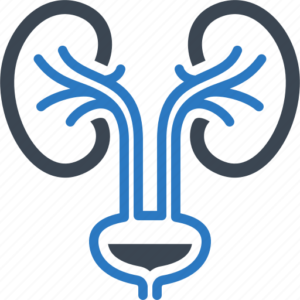Post-Surgical Care After Urological Procedures: Essential Tips for Recovery
Introduction
Recovering from urological surgery involves specific care routines to ensure proper healing and prevent complications. This guide provides essential tips for post-surgical care after common urological procedures, helping you navigate your recovery smoothly.
General Post-Surgical Care
After any urological surgery, follow these general care guidelines:
- Follow Medical Instructions: Adhere strictly to your surgeon’s instructions regarding medications, wound care, and activity restrictions.
- Manage Pain: Use prescribed pain relievers as directed and apply ice packs to reduce swelling.
- Monitor for Complications: Watch for signs of infection (redness, swelling, discharge) or unusual symptoms and contact your doctor if they occur.
Related Article: Urological Surgeries and Procedures
Care After TURP (Transurethral Resection of the Prostate)
Specific Guidelines:
- Catheter Care: You may have a catheter temporarily. Keep the area clean and monitor for signs of infection.
- Hydration: Drink plenty of fluids to flush your bladder and prevent clots.
- Activity: Avoid heavy lifting and strenuous activities for several weeks.
Related Article: Urological Treatment
Care After Cystoscopy
Specific Guidelines:
- Hydration: Drink lots of water to help flush your bladder.
- Manage Discomfort: Mild burning during urination is normal. Use over-the-counter pain relief if needed.
- Avoid Irritants: Stay away from caffeine, alcohol, and spicy foods temporarily.
Related Article: What to Expect During Urological Exams and Tests
Care After Ureteroscopy
Specific Guidelines:
- Rest: Take it easy for the first few days. Gradually resume normal activities.
- Hydration: Drink water to help pass stone fragments and prevent infection.
- Monitor Symptoms: Some blood in urine is normal, but contact your doctor if it persists or if you experience severe pain.
Related Article: Latest Advances in Urological Treatments: What You Need to Know
Learn about recovering from ureteroscopy here!
Care After Nephrectomy
Specific Guidelines:
- Wound Care: Keep surgical incisions clean and dry. Follow your surgeon’s instructions for dressing changes.
- Activity: Avoid heavy lifting and strenuous activities for several weeks. Gradually increase your activity level.
- Diet: Follow a balanced diet to aid healing and avoid constipation.
Find out how to recover after a nephrectomy here!
Care After Radical Prostatectomy
Specific Guidelines:
- Catheter Care: You’ll likely have a catheter for a few days to weeks. Follow instructions for care and monitor for infection.
- Pelvic Exercises: Start Kegel exercises as advised to strengthen pelvic floor muscles and improve urinary control.
- Monitor Symptoms: Expect some incontinence and erectile dysfunction initially; both usually improve over time.
Care After Bladder Augmentation
Specific Guidelines:
- Self-Catheterization: You may need to self-catheterize initially. Your healthcare provider will instruct you on proper technique.
- Hydration: Drink plenty of fluids to help maintain bladder function.
- Monitor for Infection: Watch for signs of infection and report any unusual symptoms to your doctor.
Care After Shock Wave Lithotripsy (SWL)
Specific Guidelines:
- Hydration: Drink plenty of water to help pass stone fragments.
- Activity: Avoid strenuous activities for a few days. Gradually return to normal activities.
- Pain Management: Use pain relief as needed for discomfort caused by passing stone fragments.
Related Article: How to Identify and Avoid Common Urological Problems
Care After Penile Implant Surgery
Specific Guidelines:
- Wound Care: Keep the surgical area clean and dry. Follow instructions for changing dressings.
- Activity: Avoid sexual activity and heavy lifting for a few weeks. Gradually resume normal activities.
- Follow-Up: Attend all follow-up appointments to ensure proper healing and implant function.
Learn about recovery after penile implant surgery here!
Care After Vasectomy
Specific Guidelines:
- Rest: Take it easy for a few days. Avoid heavy lifting and strenuous activities.
- Ice Packs: Apply ice packs to reduce swelling and discomfort.
- Monitor Symptoms: Expect minor pain and swelling. Contact your doctor if you experience severe pain or infection.
Related Article: How to Prepare for Your Visit to a Urologist
Care After Pelvic Floor Reconstruction
Specific Guidelines:
- Wound Care: Keep incisions clean and dry. Follow instructions for dressing changes.
- Activity: Avoid heavy lifting and follow specific activity restrictions for several weeks.
- Pelvic Exercises: Start pelvic floor exercises as advised to aid in recovery.
Learn about recovery after pelvic floor reconstruction here!
Psychological and Emotional Support
Specific Guidelines:
- Seek Support: Reach out to support groups or counseling services if you feel anxious or depressed.
- Communicate: Talk to your healthcare provider about any emotional challenges you face during recovery.
Find emotional support for your recovery here!
Conclusion
Post-surgical care is crucial for a smooth recovery after urological procedures. Following these tips and maintaining open communication with your healthcare provider can help you heal effectively and avoid complications. For more information or to discuss your specific needs, visit Dr. Abhishek Kumar Singh Clinic- Urology Doctor in Lucknow.
